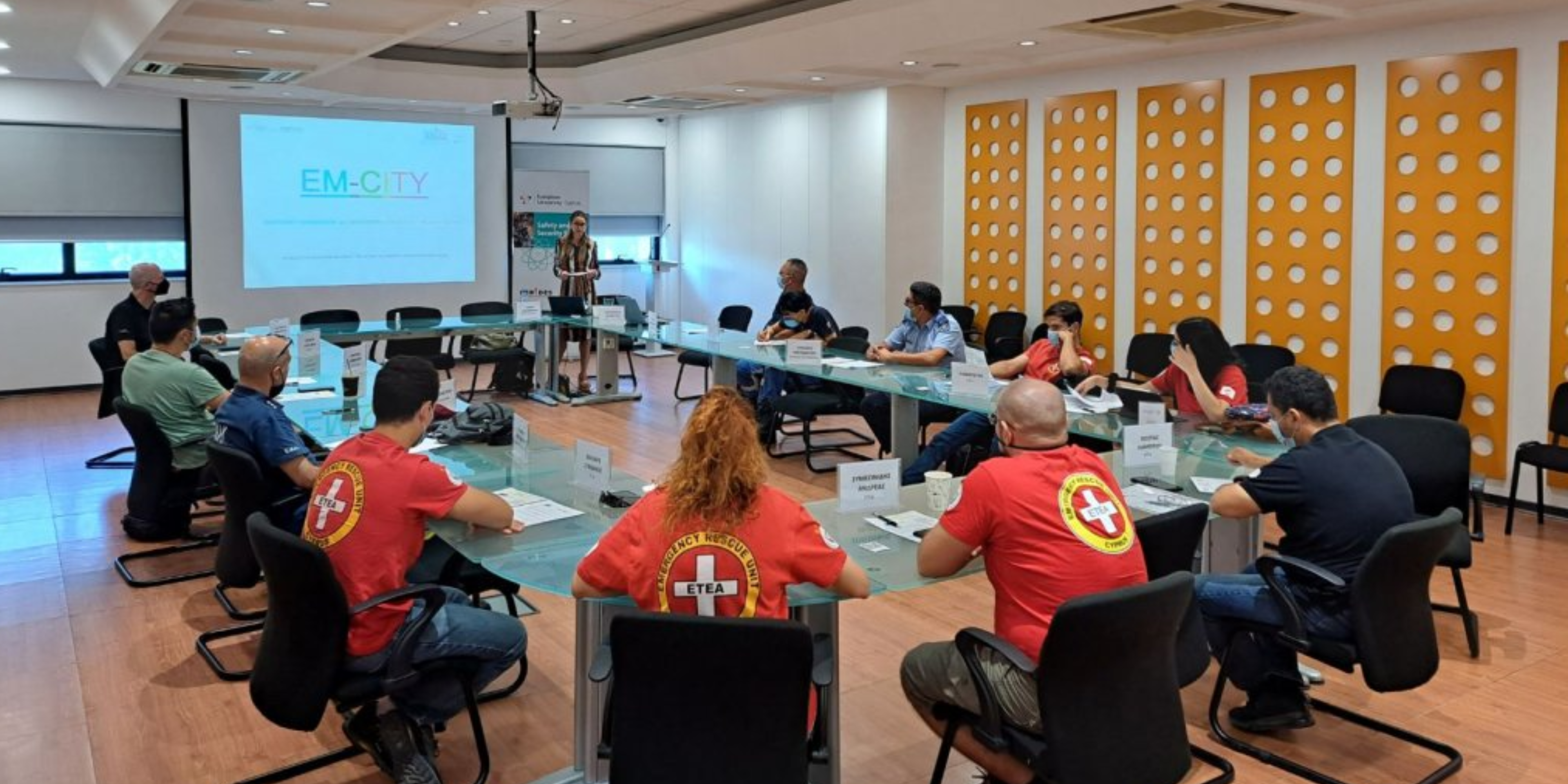CERIDES has successfully hosted the first out of the three Focus Groups of KA2 ERASMUS+ Projects EM-CITY Emergency Management by Communities’ Interaction Through Youth.
The goal of the First Focus Group (FG) was threefold.
For Local Authorities and Stakeholders from the Emergency Management to:
- Familiarize with the project in general, its main aims and aspirations, as well the expected results;
- Interact with each other, build a relationship and set common goals;
- Give their input so that they are directly involved in the development of the results of the project.
All the aforementioned goals have been achieved. This can be proved by the facts that:
- Much greater number of relevant stakeholders has participated in this FG,
- Showed great enthusiasm about the topic and aims of the project,
- Gave in depth answers leading to a meaningful discussion exceeding the expected timeframe.
All these give us courage, inspiration but also faith that the management of Emergency Situations and the training of Young people to act as “interactive bridges”; is a heating matter for the Metropolitan area of Nicosia. The main authorities of Cyprus e.g Civil Defense, the Cyprus Police, Fire Representatives (EMAK), Volunteers (ETEA), other First Responders such as Scouts and Emergency Management Trainers were present, also signing interest to continue the affiliation with the project.
EM- CITY project activities will now move to the analysis of the First four Focus Groups in all four countries participating including CCI Greece, INNOGO Turkey and EPC Italy.
This will lead to structured questionnaires to be answered by 120 relevant stakeholders from all four countries in order for the researchers involved within this project to listen to the needs of the relevant authorities, in an attempt to create meaningful, in depth, customized, up to date, relevant training material and a webportal. The aforementioned steps will lead to the ultimate goal of the project to educate young people regardless of their nationality, language and religion, on their roles during emergency situations; to act as “interactive bridges” between different parties in the process of emergency management, build communication channels among the stakeholders and local communities.
European University Cyprus| Latest News ( https://bit.ly/3ci27xP )
